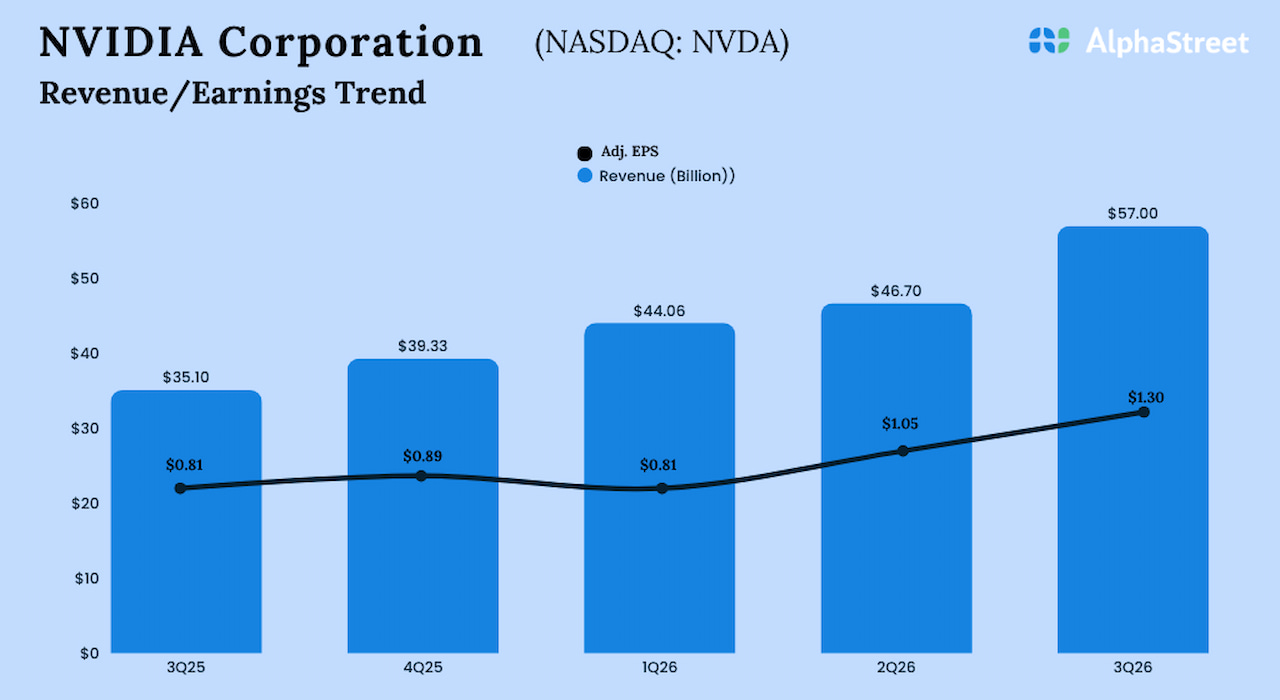Company: Workiva (WK)
Business: Workiva is a provider of cloud-based reporting solutions that are designed to solve financial and non-financial business challenges at the intersection of data, process and people. The company offers its unified software-as-a-service, or SaaS, platform that brings customers’ financial reporting; environmental, social and governance (ESG); and governance, risk and compliance (GRC) together in a controlled, secure, audit-ready platform. The Workiva platform is multi-tenant cloud software deployed in multiple regions worldwide for assured integrated reporting. The company’s platform is built primarily on Amazon Web Services and is composed of both proprietary and open-source technologies. Its Workiva platform helps customers by connecting and transforming data from hundreds of enterprise resource planning, human capital management, and customer relationship management systems, as well as other third-party cloud and on-premises applications.
Stock Market Value: $4.92 billion ($87.46 per share)
Activist: Irenic Capital Management
Ownership: ~2.0%
Average Cost: n/a
Activist Commentary: Irenic Capital was founded in October 2021 by Adam Katz, a former portfolio manager at Elliott Investment Management, and Andy Dodge, a former investment partner at Indaba Capital Management. Irenic invests in public companies and works collaboratively with firm leadership. Their activism has thus far focused on strategic activism, recommending spinoffs and sales of businesses.
What’s happening
On Sept. 29, Irenic announced that they have taken a roughly 2% position in Workiva and are calling on the company to improve its operating efficiency, review strategic alternatives with fresh board oversight, including a potential sale of the company, and improve corporate governance practices, including collapsing its dual-class share structure. Irenic also called on the company to add two new board members, including Irenic executive Krishna Korupolu, to the board, and noted that they have not ruled out nominating directors if the two sides can’t reach an agreement.
Behind the scenes
Workiva is the leading provider of cloud-based reporting solutions, integrating financial reporting, sustainability management, and governance, risk, and compliance, into a sharable, data-integrated, and audit-ready environment. Over 40% of the company’s revenue is derived from its SEC filing service, which simplifies regulatory filings and other disclosures for public companies. This is a great business that serves some of the world’s largest enterprises, with 95% of the Fortune 100, 89% of the Fortune 500 and 85% of the Fortune 1000 using its platform, supported by an approximately 97% customer retention rate that has enabled consistent mid-teens revenue growth.
But the problem for Workiva lies not in the quality of its business, but rather its lack of profitability. Despite scaling toward more than $1 billion in revenue by 2026 and over 10 years operating in the public markets, Workiva is yet to generate a profit. As a result, Workiva shares currently trade at a roughly 25% discount to application software rivals like Workday and ServiceNow.
This discount and operational challenges have drawn the attention of Irenic Capital, who has disclosed an approximately 2% position in the company and issued a presentation to the Workiva board calling for governance enhancements, operational changes and a review of strategic alternatives.
Governance is a real issue at Workiva and an obvious reason for the discounted stock price. Workiva is still run like a private company with its three founders controlling the company through the dual share class structure. This has led to a staggered board with little relevant experience and five of seven directors serving since the 2014 IPO.
Irenic would like to see the dual class share structure collapsed and the board de-staggered and reconstituted with qualified directors including Irenic executive Krishna Korupolu. In the world of shareholder activism, this is generally tantamount to asking a country like North Korea to convert to a democracy, but Irenic’s prospects are not hopeless here (more on that later).
Operationally, you get what you would expect from a founder-controlled company — an extremely bloated SG&A. Much of the margin pressure can be attributed to inefficiencies in the company’s operating model, particularly within its sales force, as sales and marketing currently occupy 43% of revenue compared to 31% on average for peers. This has produced an estimated operating margin for calendar year 2025 of 7%, despite having 80% gross profit margins. SaaS companies of this caliber should be able to meet “Rule of 40” targets (operating margins plus revenue growth equal or exceeding 40), a level of efficiency that would be extremely accretive to shareholders, which Irenic believes is achievable by FY 2027.
Workiva currently has an 18% revenue growth rate but spends an inordinate amount of money to get the last couple of percentage points. It should be able to sustain double-digit revenue growth with far less sales force spending, which could in itself meaningfully change the company’s margin profile. Combining this with the company’s extremely strong pricing power suggests room for significant profitability improvements.
Irenic states that if Workiva is unable to execute as a refocused public company with improved corporate governance, the board (preferably revamped) should run a strategic review, pursuing a sale of the company to determine the best risk-adjusted path for shareholders.
Workiva is a market leader in a secularly growing business with a vast blue-chip clientele and no real number two when it comes to its SEC filing service. The quality of Workiva’s business should mean no shortage of private and strategic interest. In fact, in 2022, reports surfaced that PE firms Thoma Bravo and TPG had interest in a potential acquisition. Logical strategic acquirers include similar financial management platforms like Intuit, stock exchange operators (Nasdaq, LSEG, Deutsche Börse), as well as software behemoths such as Salesforce, Oracle and IBM, all of whom could realize meaningful synergies.
Comparable transactions — Smartsheet/Vista Equity (7x revenue), Coupa/Thoma Bravo (8x), AspenTech/Emerson Electric (14x), and AltairEngineering/Siemens (14x) — suggest a 7 to 8 times forward revenue multiple for financial acquirers, which at $1 billion projected revenue for 2026, would imply 40% to 60% upside, with the potential for even higher premiums in a strategic transaction given the potential for significant synergies.
While Irenic’s public presence at Workiva has likely piqued the interest of potential acquirers, the bottom line here is, as an effectively controlled company, nothing can happen without the consent of the controlling parties – the three founders, who through a dual class structure control roughly 44% of the voting power.
While such factors can often stifle an activist campaign, there are a few reasons why this situation may be different. First, this is not a founding family but three different founders that are not necessarily aligned and may have grown apart.
Matthew Rizai resigned as chairman and CEO in June 2018 with a nice severance package. This and the fact that he was replaced by co-founder Martin Vanderploeg as CEO and did not even stay on the board indicates that this might have not been as mutual as the company’s press release stated. Jeffrey Trom reduced his duties at the company in 2022, resigned in 2023 and ended a consulting relationship in 2024. Additionally, all three founders are over 65 years of age and have been slowly selling shares. Of the three founders, only Vanderploeg remains actively involved in the company as the non-executive chairman and he has 10.6% of total voting power versus 24.6% for Rizai and 9.2% for Trom. At the price that Irenic thinks this company could fetch in a sale, it is hard to believe that they would not be able to get the support of Rizai and/or Trom.
Additionally, Irenic has stated that they have not ruled out nominating directors if the two sides can’t reach an agreement and if it does come to that, we would not necessarily assume the three founders are aligned.
Ken Squire is the founder and president of 13D Monitor, an institutional research service on shareholder activism, and the founder and portfolio manager of the 13D Activist Fund, a mutual fund that invests in a portfolio of activist 13D investments.


























